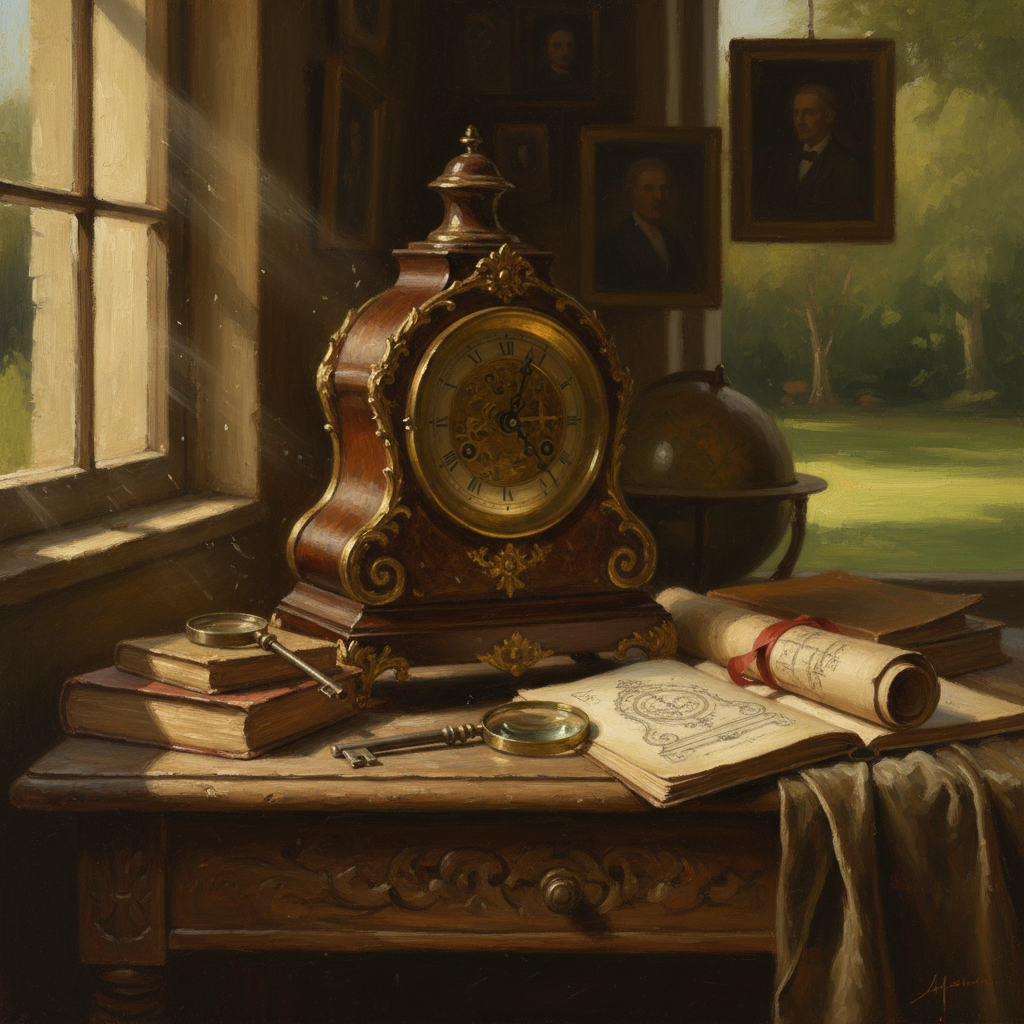The Mystery of the Lost Ariail Brother
The dust of centuries lay thick in the attic of the old Ariail family house in Upper Darby, Pennsylvania. Among the forgotten relics and shadowed memories, a golden thread of history lay waiting to be unraveled—a story buried beneath layers of time, whispers, and forgotten names.
In the yellowed pages of an old family Bible, a curious entry caught the eye of young Emily Ariail during her summer exploration of family history. Nestled between births and marriages, a single line hinted at a story long neglected: “Jean Baptiste Ariail, arrived 1717, with brothers Charles and Lucien, one lost to time.”
The name Lucien was unfamiliar, a ghost in the family record, a man who had, it seemed, vanished as mysteriously as he arrived. Intrigued, Emily embarked on a journey through her family’s scattered archives, driven by a desire to illuminate the shadowed past of this enigmatic ancestor.
Her first stop was the dusty basement of the local library. Hours turned into days, poring over musty newspaper clippings and fragile documents. It was here, in a forgotten edition of The Philadelphia Gazette from 1723, that she stumbled onto the first tantalizing clue: a small article describing a shipwreck off the coast of Cape Cod, a “Frenchman named Lucien Ariail” listed among the few survivors.
The report was sparse, but it rekindled a sense of urgency in Emily. Why had Lucien not returned to his family? Why was his name only a whisper in their history?
More determined than ever, Emily launched inquiries into French immigration records, piecing together a narrative of separation and survival. Lucien, it appeared, had been a young man of ambition, filled with dreams of prosperity in the New World. The shipwreck had changed his course, casting him adrift in a land still wild and unforgiving.
Months passed, and each record she unearthed painted a picture of a resilient survivor, a man who had carved a new life from the rugged landscape of early America. Lucien had settled in a small village on the Massachusetts coast, adopting the guise of a local fisherman. But it was his next venture that would solidify his place in the untold annals of Ariail history.
Deep in the archives, Emily discovered a journal belonging to a merchant from Salem. Its pages detailed a thriving whaling business, co-founded by none other than Lucien Ariail. The journal sang of perilous voyages, hard-fought battles against the elements, and the camaraderie of the men who dared to defy the ocean’s might. Lucien’s name appeared time and again, a testament to his leadership and daring spirit.
Yet, the most striking discovery lay in a letter—frayed at the edges and stained by the passage of time. It was addressed to a brother, Jean Baptiste, penned in a cursive that spanned the centuries with heartfelt sincerity. In it, Lucien spoke of longing and reconciliation, of hardships endured and triumphs savored, urging his brother to join him in his new life.
“To my dear brother,” it began, “fate has seen fit to cast us apart, yet my heart remains anchored to you…” Emily felt the echo of those words resonate through the years, a bridge between past and present, binding her to the familial tapestry from which she came.
Though Jean Baptiste and Lucien never reunited, Emily’s discovery immortalized the lost brother in the family lore. The tale of Lucien Ariail, the brother who vanished into history, became a cherished story shared at family gatherings, a reminder that the threads of destiny weave in mysterious ways.
As the sun set over the Ariail homestead, Emily stood by the attic window, gazing into the distance where sea met sky. She felt, at last, the presence of Lucien, a tangible legacy now woven into the vibrant fabric of their family’s saga—a story rescued from oblivion, now a beacon for future generations.



